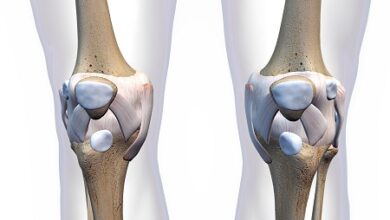12 Herbs Good For Hair Growth: Must Read In 2024

Herbs have been an integral part of hair care routines for centuries, especially in Ayurveda and traditional medicine. These natural ingredients are rich in nutrients that nourish the scalp, strengthen hair follicles, and promote hair growth.
Using herbal remedies can not only help prevent hair fall but also restore hair to its natural shine and thickness. In 2024, the popularity of herbal hair care products continues to grow, with more people turning to natural solutions for their hair problems.
Hair fall can be caused by various factors, including stress, poor nutrition, and environmental damage. Incorporating herbs into your hair care routine can be a game-changer, offering a safe, effective, and natural way to address hair issues.
Causes of Hair Loss
Hair loss can be caused by several factors. Identifying the root cause is crucial for effective treatment.
- Hormonal imbalances
- Stress and anxiety
- Poor diet and nutritional deficiencies
- Excessive use of chemical products
- Improper hair
Here are 12 Herbs for Hair Growth
In this section, we’ll explore 12 powerful herbs that can promote hair growth and address hair loss. Each herb offers unique benefits and is easy to use in your daily routine.
1. What is Ginseng?
Ginseng is a popular herb known for its ability to boost energy levels and overall health. When it comes to hair, ginseng strengthens hair follicles and encourages new hair growth by improving blood circulation to the scalp.
- Ginseng Benefits for Hair: It reduces hair loss, stimulates hair growth, and improves hair thickness. Ginseng also helps to nourish the scalp, keeping it healthy and free of dandruff.
- How to Use Ginseng?: You can use ginseng in the form of herbal hair oil for hair growth or apply ginseng-infused hair masks directly to the scalp.
2. What is Korean Red Ginseng?
Korean Red Ginseng is a variety of ginseng that has been specially processed to enhance its benefits. It has been used in traditional Korean medicine for centuries.
- Red Ginseng Benefits for Hair: Red ginseng strengthens hair roots, prevents thinning, and promotes hair regrowth. It is especially effective in combating hair loss caused by stress.
- How to Use Red Ginseng?: Red ginseng can be used as an extract in hair oils or shampoos. It can also be applied as a mask to the scalp for improved hair health.
3. What is Rosemary?
Rosemary is a fragrant herb commonly used in cooking and medicine. It is packed with antioxidants that support healthy hair growth.
- Rosemary Benefits for Hair: Rosemary helps to stimulate hair follicles, reduce dandruff, and prevent premature greying. Its antioxidant properties strengthen the scalp and promote faster hair growth.
- How to Use Rosemary?: You can use rosemary essential oil mixed with carrier oil for scalp massages or boil fresh rosemary leaves in water to create a hair rinse.
4. What is Aloe Vera?
Aloe Vera is a succulent plant known for its soothing and hydrating properties. It’s widely used in hair care to promote scalp health and strengthen hair.
- Aloe vera benefits hair: Aloe vera reduces scalp irritation, cleanses hair follicles, and helps reduce dandruff. It’s also great for hydrating dry hair.
- How to Use Aloe Vera?: Apply fresh aloe vera gel directly to your scalp or mix it with your shampoo for a soothing hair wash. Aloe vera-infused hair masks are also highly beneficial.
5. What is Brahmi?
Brahmi is an Ayurvedic herb used to promote brain function and hair health. It is often found in Ayurvedic oils and hair care products.
- Brahmi Benefits for Hair: Brahmi strengthens hair roots, reduces hair fall, and improves scalp circulation. It also helps in maintaining the natural shine of hair.
- How to Use Brahmi?: Brahmi can be used in the form of hair oil. Massage the oil onto your scalp regularly for stronger, healthier hair.
6. What is Neem?
Neem is a medicinal tree whose leaves are often used in Ayurvedic Medicine For Hair Fall. Neem is renowned for its antibacterial and antifungal properties.
- Neem Benefits for Hair: Neem helps treat dandruff, promotes hair growth, and improves scalp health. Its antimicrobial properties prevent infections and keep the scalp clean.
- How to Use Neem?: You can use neem oil or make a paste from crushed neem leaves and apply it to your scalp. Neem-infused shampoos are also effective for daily hair care.
7. What is Bhringraj?
Bhringraj, also known as the “king of herbs,” is highly regarded in Ayurveda for its ability to treat hair-related issues.
- Bhringraj Benefits for Hair: Bhringraj promotes hair growth, prevents premature greying, and strengthens hair strands. It is also excellent for scalp health.
- How to Use Bhringraj?: Use bhringraj oil to massage your scalp or make a paste from its powdered form for a nourishing hair mask.
8. What is Wild Basil?
Wild Basil is another herb that is widely used for its medicinal properties, particularly for hair care.
- Wild Basil Benefits for Hair: It improves blood circulation in the scalp, strengthens hair roots, and promotes hair regrowth. Basil also helps in reducing scalp irritation.
- How to Use Wild Basil?: Basil can be used as an extract in hair oils or as a rinse made by boiling its leaves in water.
9. What is Amla?
Amla, or Indian gooseberry, is a rich source of vitamin C and antioxidants, making it one of the best herbs for hair health.
- Amla Benefits for Hair: Amla strengthens hair follicles, reduces dandruff, and prevents premature greying. It also improves hair texture and shine.
- How to Use Amla?: You can use amla powder or oil. Amla oil can be massaged onto the scalp, while amla powder can be mixed with water to create a hair mask.
10. What is Shikakai?
Shikakai is a well-known Ayurvedic herb used as a natural shampoo alternative.
- Shikakai Benefits for Hair: Shikakai cleanses the scalp, strengthens hair roots, and reduces dandruff. It also promotes hair growth and prevents hair breakage.
- How to Use Shikakai?: Use shikakai powder as a hair cleanser or mix it with water to create a paste for a nourishing hair mask.
11. What is Ginkgo Biloba?
Ginkgo Biloba is an ancient herb known for its ability to improve circulation and reduce hair loss.
- Ginkgo Biloba Benefits for Hair: This herb helps improve blood flow to the scalp, stimulating hair growth and reducing hair fall. It also strengthens hair follicles.
- How to Use Ginkgo Biloba?: Ginkgo biloba extract can be added to shampoos or oils. Massaging the scalp with ginkgo-infused products can enhance hair growth.
12. What is Jasmine?
Jasmine is a fragrant flower often used in beauty and hair care products due to its nourishing and soothing properties.
- Jasmine Benefits for Hair: Jasmine helps to condition the scalp, reduce dandruff, and add shine to hair. It also strengthens hair strands and prevents breakage.
- How to Use Jasmine?: Jasmine oil can be used for scalp massages, or you can use jasmine-infused hair care products for daily use.
Conclusion
Using herbs for hair growth is a natural solution and a proven method that has been practiced for centuries. These 12 herbs—ginseng, red ginseng, rosemary, aloe vera, brahmi, neem, bhringraj, wild basil, amla, shikakai, ginkgo biloba, and jasmine are powerful tools in your hair care arsenal. Whether you’re dealing with hair fall or want to improve your hair’s health and shine, incorporating these herbs into your routine can bring noticeable results. From herbal hair oil for hair growth to DIY masks, these natural ingredients can transform your hair care routine in 2024!





